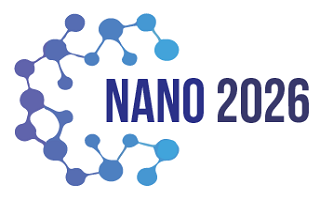3rd World Congress on
Nanotechnology
October 29-30, 2026 | Berlin, Germany

Nano 2026

University of Naples Federico II, Italy
Abstract:
Silver nanoparticles (AgNPs) are widely recognized for their unique physical and chemical properties, making them valuable in various fields, including antimicrobial coatings for medical devices, water purification technologies, and biosensors for electronics and bioimaging. However, traditional physical and chemical synthesis methods are often environmentally harmful, generating substantial side products. This has led to increasing interest in eco-friendly alternatives, particularly those leveraging microorganisms. Among these, bacteria isolated from extreme environments are particularly promising, as their resilience to harsh conditions enables the synthesis of nanoparticles under a broad range of parameters often inaccessible with conventional techniques. In this study, AgNPs were biosynthesized using the cell-free secretomes of different thermophilic microorganisms belonging to our collection. The synthesis process was monitored using UV-Vis spectrophotometry and the resulting nanoparticles characterised through transmission electron microscopy, Fourier transform infrared spectroscopy, and dynamic light scattering with zeta potential analysis. Their catalytic potential was also assessed by evaluating their ability to degrade dyes, highlighting their potential for environmental applications. These findings position extremophilic microorganisms as biological sources for the sustainable production of nanomaterials, further emphasizing their role in developing eco-friendly biotechnological processes.
Biography:
Dr. Gabriella Fiorentino is an Associate Professor of Biochemistry in the Department of Biology at the University of Naples Federico II in Italy. Her research primarily focuses on the molecular mechanisms of extremophiles, particularly thermophilic microorganisms, and their applications in biotechnology. She has contributed to understanding arsenic detoxification systems in organisms like Thermus thermophilus, exploring the regulation of arsenic resistance and the role of specific enzymes in this process. Dr. Fiorentino has also investigated the degradation of complex polysaccharides by thermophilic enzymes, highlighting their potential for biotechnological applications.
